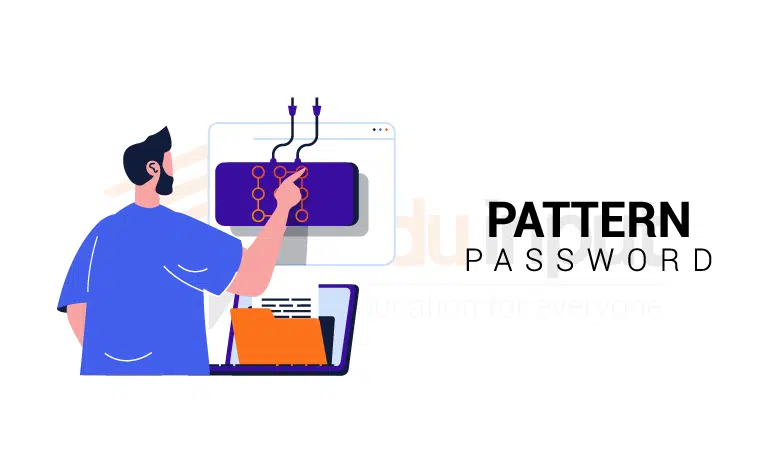What is a Password? – Types of Password
A password is a secret combination of characters (letters, numbers, and/or symbols) used to authenticate and gain access to a system, device, application, or online account. It acts as a security measure to verify the user’s identity and protect sensitive information from unauthorized access.
The user typically creates passwords, and these should be kept confidential to ensure the security of personal data. The abbreviation of the password is PW or PWD. A password is a set of secret codes, numbers, or letters that we give to our device to secure it.
It is the best method for protecting your online account. You can also use a picture or a phrase instead of just the alphabet and numbers. For best security, you must remember to use a strong password.
Passwords vary in their lengths such as if the password is given in numbers, it may be from 0 to 9 and if words or given it may be from A to Z. The password may also be a 4-digit password, 6-digit password, or it may be a 4_16 digit passcode.
Benefits of passwords
Here are the uses of password for primary 5:
- A password is very useful to secure our data, devices, or accounts.
- Passwords save our data from hackers.
- Passwords save the device from malicious software.
- A password is the first line of defense for our computers.
- The stronger the password of our device is, the more our device is secure from hacking.
Example
As we know, passwords secure our devices from hacking. In banks or offices, if the devices are not provided with passwords, it is very easy for hackers to steal the data. Which will be very dangerous for them.
In this way, a lot of money can be hacked with the help of hacking. If our device has a strong password there will be less chance of hacking.
Types of Passwords
The following are the types of passwords:
1. Simple password
A simple password is the most basic type of password. It usually consists of only letters or numbers, and all the letters are in lowercase. This type of password is easy to remember because it does not include any special characters or uppercase letters.
For example, passwords like “computer” or “7879” are simple passwords.
2. Pin code
A pin code is a type of simple password that uses only numbers. It is commonly used in devices like mobile phones or ATM cards. Pin codes are usually short, often 4 to 6 digits long, and are easy to remember.
For example, a pin code like “1234” or “567890” is quick to type and convenient for users.

3. Complex password
A complex password is a stronger type of password that uses a combination of uppercase letters, lowercase letters, numbers, and sometimes special characters like @, #, or $.
For example, a password like “@Ali#789” is a complex password. These passwords are harder to guess or crack because they include a mix of different types of characters.
4. Mixed password
A mixed password is a type of complex password that includes both uppercase and lowercase letters along with numbers. For example, a password like “PassWord123” is a mixed password. This type of password is more secure than a simple password because it uses a variety of characters.
5. Pattern password
A pattern password is a type of password commonly used on Android phones. It uses a 3×3 grid of dots, and the user connects these dots in a specific pattern to unlock the device.
For example, a user might draw a “Z” shape or a square on the grid to unlock their phone. Pattern passwords are easy to use and remember because they rely on visual patterns.

6. Fingerprint
A fingerprint password is a type of password that does not use letters, numbers, or patterns. Instead, it uses the unique fingerprint of the user to unlock the device. When you place your finger on the fingerprint scanner, the device checks if the fingerprint matches the one stored in its memory. If it matches, the device unlocks.

7. Face lock
A face lock password is a type of password that uses the camera on your device to recognize your face. When you bring your phone in front of your face, the camera scans your face and compares it to the image stored in the device. If it matches, the phone unlocks.
Face lock is very convenient because you do not need to type anything or use your hands.
Tips to create a strong password
Here are some tips to create a strong password
Choose a unique password
You don’t have to choose a password that contains only letters and numbers. There are some websites where you can even choose a phrase to create a password. So, choose a unique password.
Avoid using dictionary words
Some of the people who don’t know anything about password creation may try to use some of the commonly used words like ‘love’, ‘password’, ‘login’, etc. It is better to avoid using words that are found in a dictionary.
Use a combination of upper and lower case letters
Most people think that only lowercase letters are required for a password. But it is not the right way. It is always better to use upper and lower case letters when creating a password. It makes it more difficult to guess the password.
Avoid using the common numbers
Common numbers like 1, 2, 3, 4, etc. can be easily guessed by others. But if you want to make a strong password, then it is always better to avoid using standard numbers.
This is all about passwords and their types. For more queries, you can ask in the comment section.






Leave a Reply